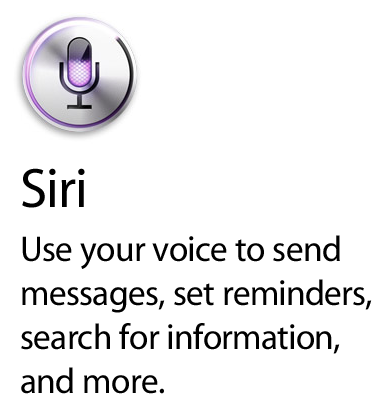A couple of weeks back, Apple was dealt a lawsuit from a disgruntled New Yorker who claimed that the Siri voice-recognition software did not work as smoothly in reality as it appeared to on the advertisements.
In a week in which the fruit company has been in hot water regarding the misrepresentation of its products, iPhone 4S owner David Jones filed a suit on Tuesday, according to the LA Times. Apple’s new iPad – although 4G LTE compliant from a hardware point of view – has come under fire in countries such as Australia, where it is marketed as an "iPad 4G", despite none of the major carriers Down Under actually supporting 4G.
Similarly to the first class-action suit, Jones accuses Tim Cook’s company of falsely representing Siri’s capabilities:
Through its nationwide multimedia marketing campaign, Apple disseminates false and deceptive representations regarding the functionality of the Siri feature
Like the New York suit, lodged by Brooklyn resident Frank M Fazio, Jones’ complaint states grievances with the end product:
In many of Apple’s television commercials. . Apple depicts tasks as easily accomplished "just by asking" Siri. Apple’s deceptive commercials diverge greatly from the actual functionality and operation of the Siri feature.
In Jones’ case, "Siri would either not understand what Plaintiff asked, or, after a long wait, provided the wrong answer." He is currently seeking "relief and damages" for not only himself, but other iPhone 4S buyers.
As well as the uprising of iPad-related issues, this second suit comes just a day after Apple began paying compensation to iPhone 4 users affected by the Antennagate scandal of 2010. If you were among the early adopters of the landmark Retina device, then check out this link for more information on how you can retrieve either a $15 settlement, or a free bumper.
Most iPhone 4S adverts currently doing the rounds use Siri as the clinching feature, and although almost nine in every ten iPhone 4S owners consult Siri on a regular basis, reviews have certainly been mixed.
Lawsuits like this certainly won’t do the company’s PR any good, and although most of us can take Siri for what it is – a beta-stage implementation – such heavy marketing should maybe warrant a more finished article.
Thoughts?
You can follow us on Twitter, add us to your circle on Google+ or like our Facebook page to keep yourself updated on all the latest from Microsoft, Google, Apple and the web

